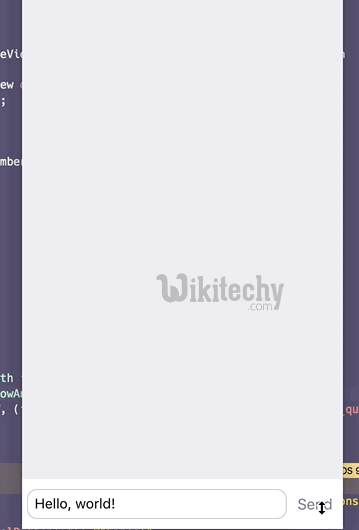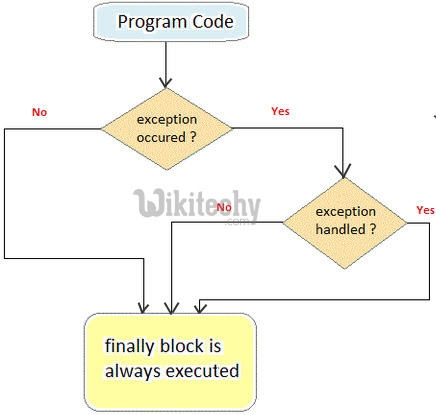C# Exception Handling - c# - c# tutorial - c# net
What is Exception handling in C# ?
- Exception Handling in C# is a process to handle runtime errors.
- We perform exception handling so that normal flow of the application can be maintained even after runtime errors.
- In C#, exception is an event or object which is thrown at runtime.
- All exceptions the derived from System.Exception class. It is a runtime error which can be handled.
- If we don't handle the exception, it prints exception message and terminates the program.

Exception Handling
Advantage
- It maintains the normal flow of the application. In such case, rest of the code is executed event after exception.
C# Exception Classes
- All the exception classes in C# are derived from System.Exception class. Let's see the list of C# common exception classes.
| Exception | Description |
|---|---|
| System.DivideByZeroException | handles the error generated by dividing a number with zero. |
| System.NullReferenceException | handles the error generated by referencing the null object. |
| System.InvalidCastException | handles the error generated by invalid typecasting. |
| System.IO.IOException | handles the Input Output errors. |
| System.FieldAccessException | handles the error generated by invalid private or protected field access. |
Read Also
dot net training center in chennai , how to learn dotnet for beginners , advanced dotnet course syllabusC# Exception Handling Keywords
- In C#, we use 4 keywords to perform exception handling:
- try
- catch
- finally, and
- throw

Try Catch Exception
